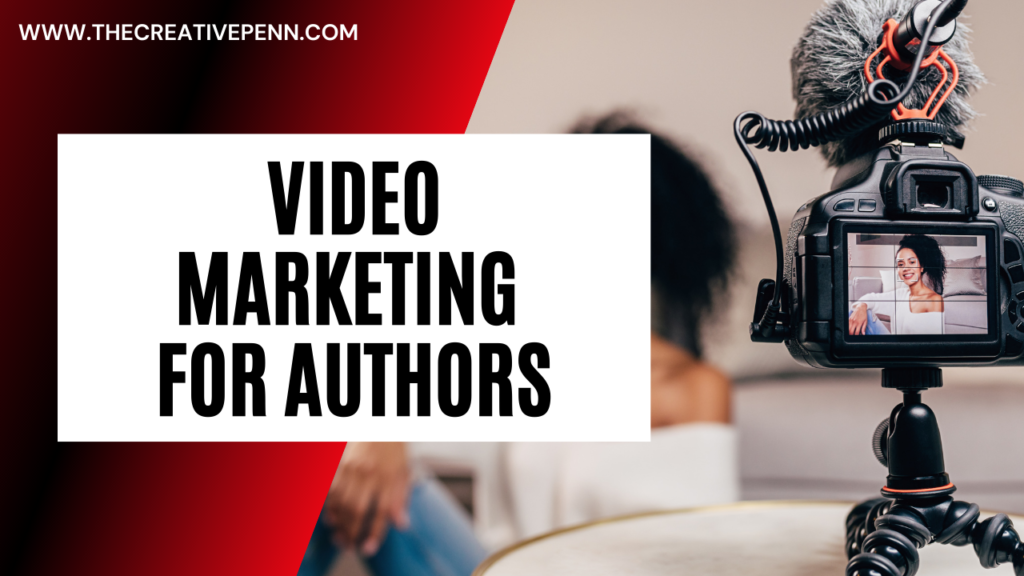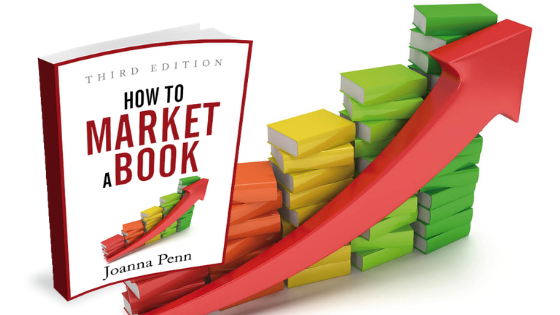Many authors seem to think that the only way to use video as an author is to have a book trailer available.
But creating one video, of any kind, is the least effective way to utilize this powerful medium. There are lots of options for using video marketing, and you can even just use your smartphone these days. You don't need loads of expensive equipment.
This is an excerpt from How to Market a Book Third Edition, available now in ebook, print and audiobook formats.
Why is video great for marketing?
YouTube is owned by Google and is either the #1 or #2 search engine on any given day.
YouTube has over a billion users, and over 500 million hours of video are watched on it every day.
In fact, one study reports that one-third of online activity is spent watching video, increasing as social media focuses on video too.
If you have a lot of videos on a particular topic, your channel will become a place that people subscribe and return to. People are also increasingly used to consuming long-form video on YouTube as more TV shows are available for streaming.
Video is great for instant connection.
If people know you, like you and trust you, they are more likely to buy your book. When people see your face and your smile when they hear your voice, they will make a decision as to whether they like you. The greatest proportion of human communication is non-verbal, which can't be communicated in plain text.
Voice recognition is improving
Google is developing voice recognition and automatic captioning so that videos will be more easily searchable through text-based algorithms. This means that your ranking for a particular topic could be fantastic if your videos are around niche keywords.
As AI universal translation services improve, viewers may also be able to consume your work in other languages.
Video can be the basis of your platform if it suits your style and personality.
Video can drive traffic to your main author site if you add show notes under the video or a website link in the video. This increases your traffic and hopefully your subscriber list and sales.
It helps you stand out because so few authors do video. It is especially valuable if you want to speak or if you have a business that goes beyond the book.
There are many options for video content. Here are just a few:
Vlogs or talking head opinion pieces
Many of the big YouTubers do this, whether it's in their bedroom or out on location. It's about sharing your thoughts on life, or on themes that resonate with your book.
It's usually done every day as a slice of life, although it's often heavily edited. YouTubers jump cut between scenes or intersperse with other video clips or music.
The most important thing is to create videos that appeal to your target market and give them an insight into your life.
A great author example of an author vlogger is John Green, New York Times bestselling author of The Fault in Our Stars and other books for young adults. His YouTube channel VlogBrothers, created with his brother Hank, has nearly three million subscribers.
John and Hank connect with their audience by creating the type of videos that their demographic enjoy – fast-talking, attention-grabbing, crazy-loud talking, almost-daily vlogging covering everything from nerd jokes to explanations of political events. They educate as well as entertain, and their Nerdfighter fans love them for it.
You can find one of my opinion videos, filmed outside the London Library on a winter morning, at www.TheCreativePenn.com/fictionliveson
Interviews
The majority of my YouTube videos are Skype interviews for my podcast, but they can also be on location. I post the whole video as one long interview, whereas most likely it would be better to do multiple clips with more specific segments.
But as video is a secondary channel for me, I choose to leave it unedited. You can find an interview with Steven Pressfield, author of The War of Art, Turning Pro and many more great books for authors at www.TheCreativePenn.com/pressfield
Product review videos
There are lots of vloggers who focus on reviewing products like makeup through tutorials and demonstrations. For authors, review videos are posted by BookTubers who you can pitch with your book if appropriate as it must be a beautiful physical product for them to consider reviewing it.
How To instructional and teaching videos
When our sink blocked recently, we went straight on YouTube and found a video to help us fix it. This type of practical video is super useful and ranges from pronunciation tips to knitting, to using Dragon for dictating your book and many more examples that would suit non-fiction authors in particular.
You can film the activity or use screen capture software like ScreenFlow for Mac or Camtasia for PC, which is great if your book is about software or online tools.
Another variation is the webinar or presentation-style teaching format. You can find a recording of a webinar I did on How to Write Fiction as a Non-Fiction Author at: www.TheCreativePenn.com/writefictionvideo
Time-lapse video
If you use your smart phone for video, there are all kinds of cool apps you can use. I used the TimeLapse app to create a video about book-binding available at www.TheCreativePenn.com/bookbinding
Facebook Live videos
You can now broadcast directly from your Facebook Page, and many authors are sharing ‘on location' videos or behind the scenes at their writing desks or on research trips. They're also doing live Q&A sessions. I've done a few of these, and you can download the video later and post it on YouTube, repurposing the content. You can find one of my recorded Facebook live sessions at www.TheCreativePenn.com/facebooklive
You can also post your other videos on Facebook and other social media.
Over half of video content is viewed on mobile, so it is well worth utilizing these mobile-first video platforms. I found that engagement on my Facebook Live videos was high, but to be honest, I am not a fan of doing live video, so consider what works for you.
Book trailers
These can range from movie-style trailers that are out of the budget of most indies, to reading from your book or a DIY version compiled yourself from royalty-free music and video clips.
My main issue with book trailers is that some authors think that one video will make all the difference to their sales, but it rarely does. The most successful people in video marketing online are putting videos out regularly, so fans develop a viewing habit over time.
Book trailers can be great if they're done well or used as part of a campaign, but the return on investment is hard to track, and there are better ways to spend a marketing budget.
For the really professional side of things, check out Tim Ferriss's blog post on how to create a viral book trailer or get a million views for almost anything at: www.TheCreativePenn.com/timbooktrailer
Tim's book trailer for The Four Hour Chef is indeed awesome, but certainly beyond the budget of 99.99% of us.
I've made book trailers using royalty-free stock footage, photos and music and I've also hired professionals.
Self-made trailer for The Successful Author Mindset: TheCreativePenn.com/mindsettrailer
This is an excerpt from How to Market a Book Third Edition, available now in ebook, print and audiobook formats.


